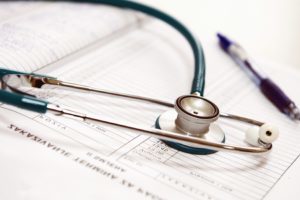Skip to the content
Skip to the Navigation

If you wish to practice a profession in medicine, there is only one way: medical school. Medical studies are particularly selective and require a great capacity for work. In this article, we will provide the necessary information to identify the paths to follow as an exile to reach these studies.
As a result of health studies’ reform, the first common year for health studies (PACES) has been abolished. Access to Medicine, Maieutics, Dentistry, Pharmacy, and Physiotherapy (MMOPK) will be possible via two different paths in the first year: the health path (PASS) and the health access license (L.AS).
Only the first year is reformed, the continuation of studies does not change.
PASS exams: the modalities of access to the second year of health studies:
As we mentioned earlier, there are no longer competitive exams but end-of-semester exams: this is what PASS students face this year to obtain their place in the second year of medical school. These are mostly MCQs, as was already the case in PACES (first-year common to health studies). However, what is changing are the admission requirements for the second year of health studies, which, as specified in the decree of November 4, 2019, vary from one university to another. Here is a brief overview of what should finally apply for this first year of reform.
Modalities of access to the second year of health studies in brief :
Validating 60 ECTS in the first session :
Like all undergraduate students, PASS students will have to validate 60 ECTS credits, including at least 10 in the health field, to be admitted to the second year. But that’s not all. Access to health studies is still as difficult as ever, despite the reform and the end of the numerus clausus. Students are still selected because the demands are still too high compared to the capacity of the universities.
Students will have to validate their PASS year in the first session to enter MMOPK (medicine, OB-GYN, dentistry, pharmacy, physiotherapy). In other words, students should avoid going to make up for the lost time in one of the subjects taught.
If the student is admitted to health studies :
-
he or she then continues in the first cycle of health studies (medicine, OB-GYN, dentistry, or pharmacy).
-
If the student does not pass the admission exams but validates his 1st year: he can continue in the 2nd year of the bachelor’s degree in the option he has chosen. In this case, the student can try again to take the entrance exams a second and final time later. He can apply at the end of L2 or L3.
-
If the student does not validate his first year: he must reorient himself; no repetition is possible.
LAS license: the “health access” license
Introduced by the health studies reform to replace the PACES, the “health access” license is not quite a license like any other. At least as far as the examination procedures are concerned, which are currently being tested. To best respond to students’ projects and strong points, L.AS is a generalist license with an “Accès Santé” option that allows students to enter the 2nd year of health studies in the MMOP track that interests them from L1 L2 or L3.
450 L.AS are now listed in France:
Of which 162 are in science, technology, and health, 44 in law, 44 in SES (economic and social sciences), 94 in humanities, 25 in psychology, and 17 in STAPS (sciences and techniques of physical and sports activities). These L.AS are therefore composed of a health minor, representing at least 10 ECTS credits, and a major that you will choose according to the offer available at your university. PASS courses are mainly in the biomedical field and include a minor from another disciplinary field.
At the end of the first year :
- If the student validates their 1st year and passes the admission tests for health studies they can be admitted to the 2nd year in the health field in which they were initially enrolled.
- If the student validates their 1st year but does not pass the health studies admission exams they may continue in the option that they initially chose. They may apply for a second and final time for health studies at a later date, at the end of L2 or L3.
- If the student does not validate their first year they can repeat this first year or redirect themselves.
Which one, PASS or L.AS?
High school students must consider their strengths, interests, and fields of study that interest them outside of healthcare.
The application for health studies will be judged, to a large extent, on the marks obtained in the first year at university. Therefore, it is recommended that you enroll in courses that correspond to your strengths in high school and your study project.
High school students whose strengths are in fields far removed from biology can choose a Bachelor’s degree with a “health option” in a field that interests them.
Gateways to the health streams :
To diversify candidates’ profiles entering medical, dental, pharmaceutical, and OB-GYN studies, bridging opportunities are open to candidates with diplomas.
Since 2017, this system has also been open to paramedical professionals (holders of a diploma certifying at least 3 years of higher education allowing them to practice).
This procedure takes place in 2 stages:
An examination of the application file by the jury, and an interview of eligible candidates.
Candidates will have to demonstrate to the jury :
– Their motivation to undertake health studies or to reorient themselves in another health field, according to the field they have chosen.
– Their ability to follow the training concerned, both in terms of knowledge acquisition and skills.
In any given year, candidates can only apply for one course of study AND one UFR or training structure.
No one can benefit more than twice from this decree’s provisions, whatever the course applied for.
An admissions jury examines the applications and, after studying their file, invites the selected candidates to an interview with the jury.
Previous article
3 March 2021



